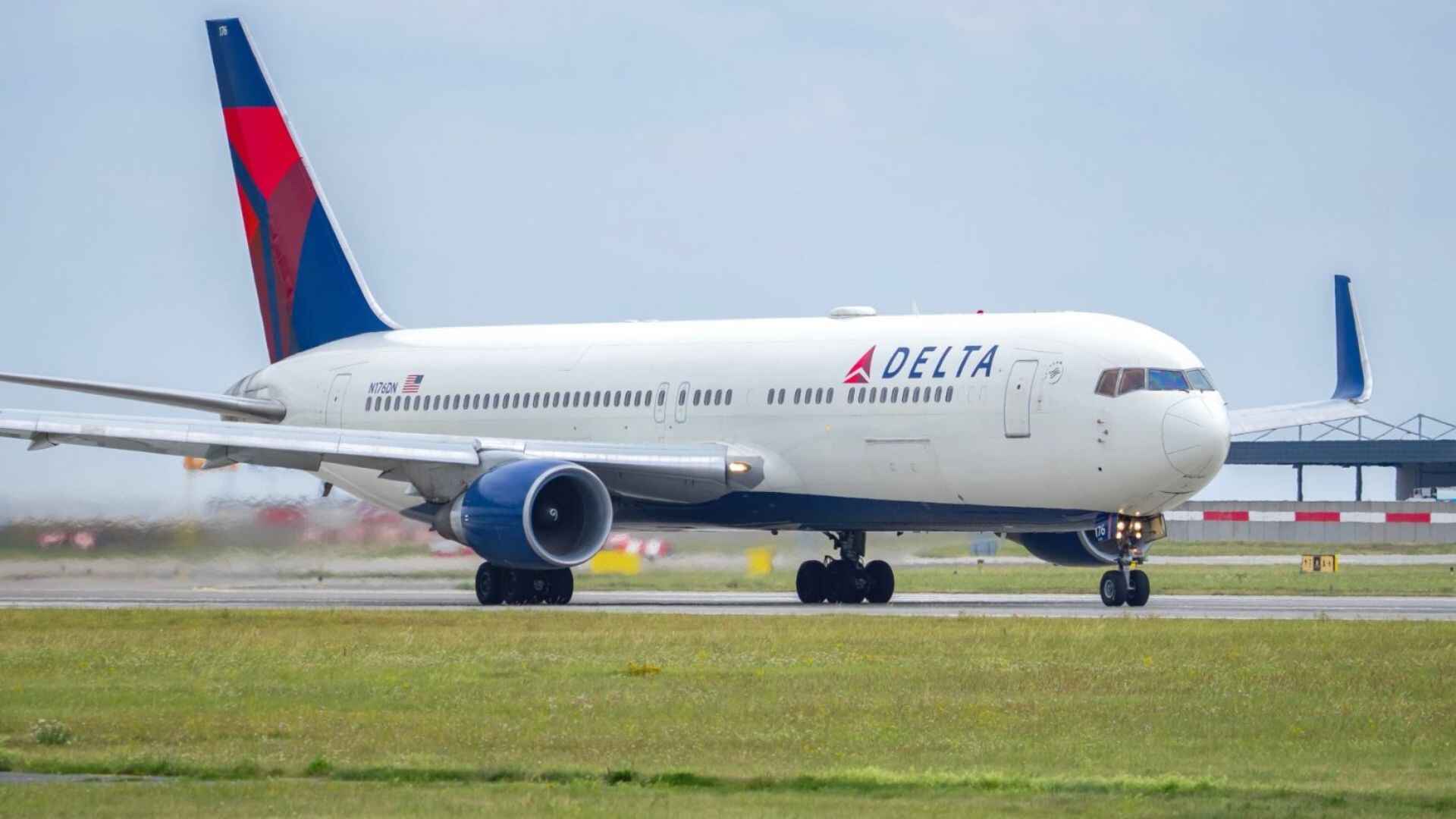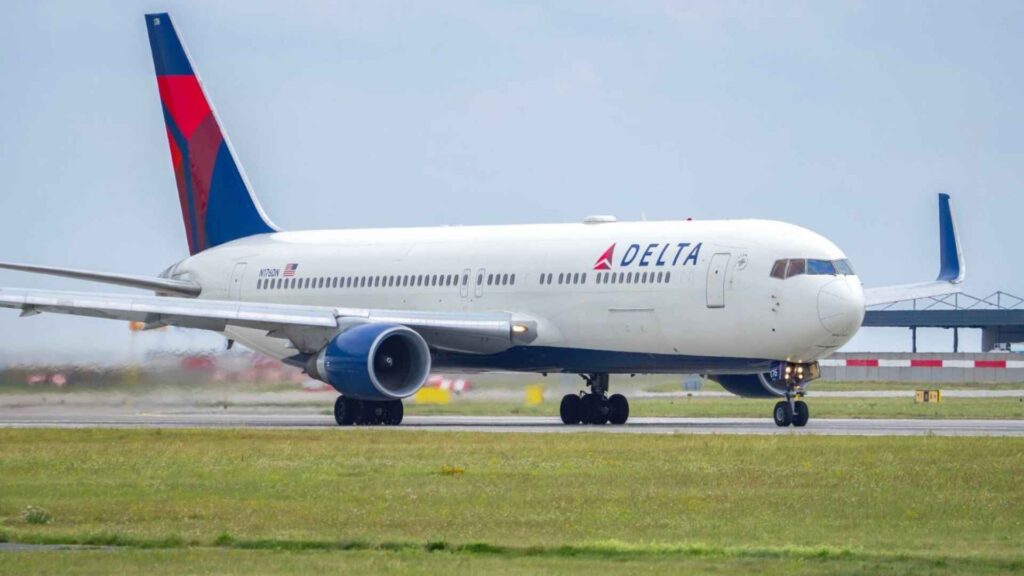By Techbish News,
A bold error by a seasoned cabin crew member at Delta Air Lines has triggered major operational chaos and a hefty financial hit. On October 25 2025, a Delta flight attendant mistakenly deployed the emergency evacuation slide of an Airbus A220 at Pittsburgh International Airport (PIT), triggering a cascade of delays, stranded passengers and an estimated $70,000 in immediate costs.
The Slide Deployment That Shouldn’t Have Happened
The incident began with a routine pre-departure check by a Delta flight attendant that went catastrophically wrong.
What actually unfolded
The Delta flight attendant, a veteran with 26 years of service, armed the aircraft’s forward left-hand (1L) door as per standard departure procedure. Moments later, the attendant inadvertently lifted the door handle while the door system remained armed — triggering the automatic emergency-slide mechanism. The slide inflated against the jet-bridge and disabled the boarding exit, leaving passengers trapped while ground crews detached the equipment — resulting in a delay of approximately four hours.
Immediate operational and financial fallout
Emergency evacuation slides on jets like the Airbus A220 cost between $50,000 and $70,000 just for replacement — and when factoring in repair, repack, inspection and passenger rebooking costs, the total event expense can climb into six-figures. Passengers missed connections in Salt Lake City and some spent the night in hotels as the airline scrambled to recover.
Why Did a Highly-Experienced Flight Attendant Slip Up?
Even veteran crew members aren’t immune to the systemic risks built into aircraft procedures and human error.
System design and human-factor vulnerabilities
Inadvertent slide deployments (ISDs) are a known issue in aviation: globally, up to three such incidents occur daily across airlines, according to Airbus data. The arming/disarming door process demands precise handling — but if the door handle is moved while armed, the safety system leaves almost no time to react. In this case the Delta flight attendant inadvertently triggered that threshold.
Training, cross-checks and organizational safeguards
Industry analysts point out that many ISDs occur during door-disarming phases, when a single attendant carries out duties without a second cross-check. Some airlines (e.g., British Airways) have adopted the Japanese “Shisa Kanko” (point-and-call) method to reduce human error by up to 85%. While Delta has not publicly announced similar procedural changes, aviation-safety experts say the PIT incident signals a need for refreshed training for the Delta flight attendant team.
Aviation Safety Community Weighs In
Aviation specialists and safety analysts offer key insights into how a routine error turned into an expensive one.
Safety engineer’s perspective
“Opening the door from the inside while it’s armed triggers the system — it’s a design trade-off to ensure rapid evacuation in emergencies,” explained a veteran safety engineer in commentary reported by the media. Taken out of emergency context, the same system becomes prone to inadvertent activation by a trained professional.
Operations and cost-impact analysis
From an operational viewpoint, one industry blog noted that the initial slide replacement cost was “around $70,000” but the full cost including passenger disruption could be double or triple that. For the Delta flight attendant’s employer, the reputational and logistical downside is just as significant as the direct expense.
Fixes & Forward Path: How Delta Begins Recovery
The incident is prompting procedural reviews and could force the airline to update training to prevent similar slide-deployment events.
Immediate corrective action
Delta has launched an internal investigation, reassigned crew, and offered rebooking and hotel accommodations to affected travellers. Though no public details of disciplinary action against the Delta flight attendant have been shared, industry practice suggests retraining rather than termination in such cases.
Long-term mitigation strategies
To avoid future slide deploy mistakes, Delta may adopt stricter door-arming cross-checks, deploy point-and-call protocols, and use additional door-status alarms. These measures could reduce risks tied to human-machine interface errors, especially in high-stress pre-departure moments.
Passengers’ Viewpoint: What It Meant in the Cabin
For the travellers onboard, the error by the Delta flight attendant translated into frustration, delay and uncertainty.
Stranded and disappointed flyers
Reports show passengers remained onboard the Airbus A220 for more than an hour while the inflated slide was removed. Flights delayed roughly four hours caused disrupted connections and unscheduled overnight stays. One Reddit user described the scene:
“The flight attendant accidentally triggered the emergency slide… He did apologize and was quite flustered… Everyone’s entire night just became a cluster f-k.”
Sympathy meets concern
While many travellers expressed frustration at being delayed, some also conveyed sympathy toward the Delta flight attendant, acknowledging that even seasoned professionals face system-built risks. The incident sparked broader questions about how routine duties on modern aircraft can hide costly error traps.
Closing Discussion
The case of the Delta flight attendant at Pittsburgh International Airport is a vivid reminder that even sleek, modern aviation systems remain vulnerable to human-machine interface errors. A veteran crew member’s split-second misstep triggered a slide deployment that cost roughly $70,000 and delayed dozens of passengers — but more importantly, it exposed a latent risk in pre-flight operations.
In the end, the key takeaway is this: process, procedure, and human-factor design must evolve together. For Delta, and for every airline, the slide-deployment mistake is a wake-up call to refresh training, reinforce safeguards and reinforce cross-checks. For passengers, it underscores that behind every door-arming protocol lies real-world impact.








